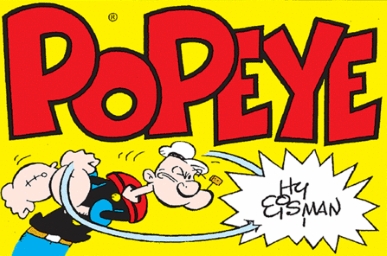CSotD: The Challenge of Target-Rich Days
Skip to commentsKatauskas isn’t exaggerating by a whole lot, and while the current flood of insanity might make it hard for a fortuneteller to go off the rails, the resulting target-rich environment poses a different challenge for political cartoonists.
There is, first of all, the question of which event to pick up on. You don’t want to avoid the obvious, but when everything is obvious, you have to decide what needs to be addressed right now and what will keep until your next time at bat. For an artist with a weekly schedule, this can be deadly, but even daily workers face tough choices.
And, of course, when the target is obvious, the approach is frequently obvious as well, and the odds of duplicating someone else’s choices become an issue. There have been some excellent Signalgate cartoons but way too many similar misdirected-message gags. It’s not as bad as the 50-plus weeping Statues of Liberty we saw after 9/11, but it’s bad enough.
And it matters. Varadan points out the importance of comedy in a time when nobody else seems to be stepping forward, and he’s right, but this also applies to political cartoons, which are not required to be laugh-aloud funny but are required to hit hard and fast, sometimes with actual comedy, sometimes with dark sarcasm.
Cartoonists with a taste for laughs caught a break this week, since our vice-president appears to be something of an unintentional court fool, an example of what Spiro Agnew might have been if he hadn’t had Pat Buchanan writing his speeches.
Jeremy Banx has the advantage of a pattern of silly commentary, and the Vance trip to Greenland was about as silly as real life becomes. Still, he managed to work in the issue of climate change as well as the absurdity of a trip that started as a vacation and wound up as, well, as whatever it wound up as.
The challenge for Banx was to be more ridiculous than the actual trip.
As a Canadian, MacKay started out knowing his readers were already hostile to Trump and company, and he made the most of turning Vance into an arrogant explorer, planting a flag on land he has no right to claim. MacKay works in a number of issues and gags, including the rejection by Greenlanders, the desire to exploit their natural resources and the cover story of a vacation with Usha, who doesn’t even get out of the boat.
There is also the suggestion of gunboat diplomacy, which also references the fact that, having been disinvited to the dogsled races and generally made to feel unwelcome by the locals, the vacation turned into a brief visit to an American military base.
What did the Americans gain from this brief, absurd outing? Adams suggests the answer, and puts an appropriate expression on the face of the mastermind behind it.
And Joe Heller suggests that they may not have even been sure of where they were on their little touch-and-go visit.
The foreign policy of the Trump administration has sparked stories of Americans pretending to be Canadian when traveling abroad, and Greenberg has some fun with it, but, in fact, young Americans abroad have posed as Canadians since the days of Vietnam. A Canadian flag on your backpack was essential for hitchhiking and playing Johnny Canuck avoided needing that phrasebook.
It’s not that hard. As John Wing explained, Canadians are just unarmed Americans with health insurance.
However, there are serious things that also inspired cartoons, and Signalgate is not going away. I hate the term, but I’m pleased that the issue itself hasn’t drifted off into irrelevance.
The chat itself is well in the past, but the blowback is still very much alive, and Matson captures the conflicting explanations still coming from the White House and the GOP Congress. Plus, the elephant in his MAGA hat tangled in a red tie is a nice touch.
Moreover, the inability of the administration to get their story straight is becoming emblematic of the disorganization inherent in their overall approach to governing. We’ve seen tariffs imposed and then withdrawn and then imposed again, we’ve seen people fired and then rehired after it was recognized that their positions were critical and, yes, we saw a vacation by the Second Lady change from a friendly visit to a dogsled race into her husband’s mission to deliver belligerent remarks.
Steve Breen brings up the uncomfortable point that, while inspectors general are supposed to ride herd on the military and make sure it conforms to legal requirements, we appear to have fired them all, a move that, at the time, was criticized as an attempt to avoid having to conform to legal requirements.
That wasn’t a problem when the GOP was completely cowed into going along with whatever the White House wanted, but now we’re seeing Republican legislators demand answers, and possible action, over the double-barreled security failure of conducting sensitive business over an insecure communications system (and possibly on personal phones), and the jaw-dropping blunder of inviting a journalist to listen in.
Add the error of obviously lying to Congress about it and it’s as if the executive branch were daring the legislators to stand up and fight back.
Though I like Gabbard’s defense that she didn’t realize they were talking about weapons and war plans because she wasn’t paying attention.
Beckom advances the new, improved GOP explanation that security doesn’t matter because the mission was successful. This is the equivalent of being arrested for drunk driving and offering the defense that you hadn’t smashed into anything.
Better hope you don’t come up before Judge Duckworth.
Zyglis points out that people who do their jobs well get fired but high-ranking screw-ups don’t. Or, as Military.com headlined their commentary, ‘Different Spanks for Different Ranks.’
In the military, commanders are punished for failures under their command even if they weren’t present when it happened. Every soldier, sailor and marine knows this.
Including the many veterans who, until recently, worked at National Parks and elsewhere in the federal government.
But don’t worry. Everything is under control.
Well, under as much control as everything else.














Comments 20
Comments are closed.